Gluten-Free No-Cook Muesli
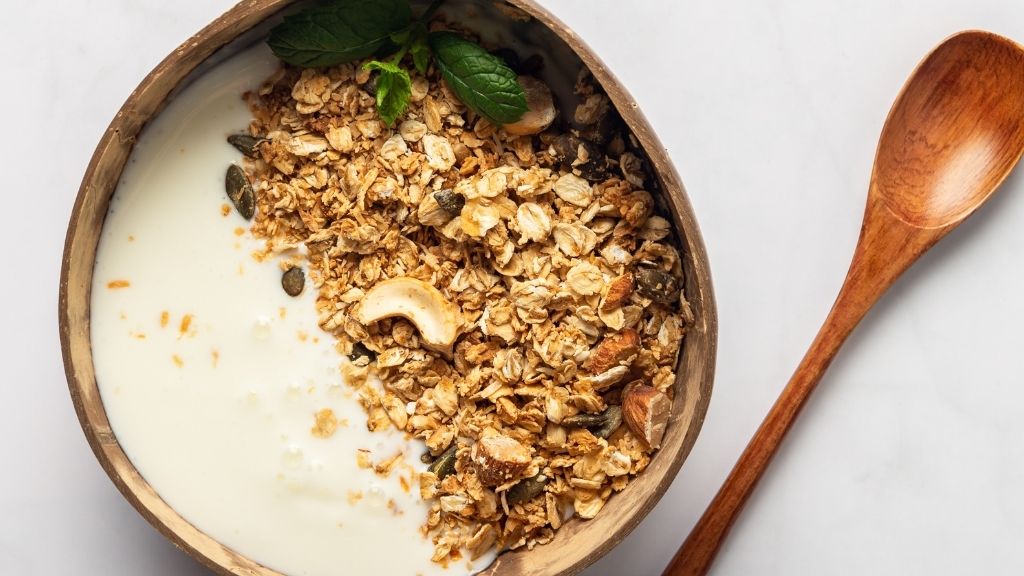
When it’s cold outside, many of us like to start off the day with a warming and filling breakfast such as oatmeal. As the warmer temperatures hit, however, consistently eating a hot porridge isn’t always appealing. In the summer, I frequently reach for smoothies, green juices, or a cool elixir first thing in the morning as I rev up digestion for the day. There are also mornings when I just want something a little more filling and grounding. This is when I turn to gluten-free muesli.
What Is Muesli?
Muesli is a dry cereal mix made with grains, dried fruit, seeds and nuts. Traditionally, muesli is soaked in some kind of liquid like milk, yogurt or juice to soften everything and improve digestibility. But it can also be used dry as a topping.
The Swiss physician Maximilian Bircher-Benner developed muesli around 1900 for patients in his hospital, where – imagine this – a diet rich in fresh fruit and vegetables was an essential part of therapy. Bircher-Benner himself referred to the dish simply as “d’Spys” (Swiss German for “the dish”).
It wasn’t originally intended to be eaten as a breakfast cereal – apparently, it was meant to be an appetizer, a replacement for bread and butter. However, I can easily see, given the ingredient list, why it was eagerly adopted as a breakfast food.
Muesli as we know it rose in popularity in the 1960s along with hippies, health food and vegetarian diets.
Muesli, Granola and Overnight Oats: What’s the Difference?
Muesli is meant to be consumed soaked, cold and raw, is packed with fibre and typically contains little to no sugar (or far less sugar than most cereal brands). It can contain a range of different grains including oats, wheat, rye and barley, meaning it isn’t necessarily gluten-free.
Granola is baked and usually higher in sugar, with the sweetener often being used as a binder as well as the sugar content of the add-ins like dried fruit or chocolate chips.
You could say that muesli was the original overnight oats – as the same components in overnight oats are used in muesli.
Best Ingredients for Gluten-Free Muesli
The Grains
Not all muesli is naturally gluten-free. To make gluten-free muesli, opt for:
- Gluten-free oats
- Buckwheat
- Quinoa flakes
- Millet
These are optimal because they are small and tender, and will easily soften up after soaking.
Dried Fruit
Look for dried fruit to add to your muesli that doesn’t have added sugar, sulphites or other colouring agents, or added unhealthy oils. Some of my faves include:
- Dates
- Goji berries
- Apricots
- Mango
- Pineapple
- Raisins (you can fight me on this)
- Mulberries
- Cranberries
- Dried Apples
Liquids
For the soaking liquid, opt for:
- Dairy-free yogurt (I love this coconut yogurt/kefir)
- Dairy-free nut or seed milk
- Herbal tea
Nuts and Seeds
Nuts and seeds are essential for muesli as they provide protein, fat and fibre, as well as an array of nutrients depending on which nut/seed you choose. I like raw, untoasted and unsalted nuts (and I never use peanuts).
- Almonds
- Walnuts
- Pecans
- Brazil nuts
- Cashews
- Hemp seeds
- Sesame seeds
- Sunflower seeds
- Pumpkin seeds
If you are using chia seeds, they soak up a lot of liquid so ensure you add more.
The Toppings
Fresh fruit is my go-to, but for an extra-special treat try some coconut cream or coconut whipped cream.
Make Your gluten-free Muesli Grain-Free or Nut-Free
For a grain-free muesli option, use chopped nuts (the additional surface area will help them soak more quickly) or almond flour.
To create nut-free muesli, simply swap nuts for seeds.
Batch Prepping Gluten-Free Muesli
I love this recipe because you can batch prep the mixture and then scoop out what you need when you need it. If you eat gluten-free muesli sporadically, keep this in the fridge or freezer for optimal freshness.
Gluten-free muesli will need several hours of soaking time. The easiest thing is to make it the night before so it’s ready to go the next morning. Use a single serving mason jar with a lid so you can simply take on the go or add to a lunchbox.
You can make these a couple of days ahead of time – but I wouldn’t recommend having these sit in the fridge for more than 2–3 days.
Other Warm-Weather Breakfast Ideas
Other options aside from gluten-free muesli are:
- A breakfast salad
- Lightly steamed veggies with your protein of choice
- Chia pudding
- Breakfast parfaits
- Room temperature or cold fruit crumble
- Room temperature gluten-free veggie quiche
- Grain-free bread with nut butter or mashed avocado and sauerkraut
For anyone who claims not to have time for breakfast, I’ll throw this at them. Most of the work is done at night – and with merely a grate of apple and a sprinkle of cinnamon, you are ready to rock in the morning.
Print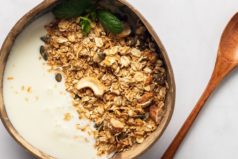
Gluten-Free No-Cook Muesli
- Total Time: 5 minutes
- Yield: 1 serving 1x
Description
A gluten-free muesli mix you can batch prep and have ready for busy mornings.
Ingredients
Make in advance:
- 2 1/2 cups gluten-free rolled oats
- 1/3 cup buckwheat
- 1/2 cup walnut pieces
- 1/4 cup pumpkin seeds
- 1/4 cup sunflower seeds
- 3/4 cup dried fruit of choice
For serving:
- 1/4 cup pre-made muesli mix
- 1/4 cup dairy-free yogurt or nut/seed milk
- 1 Tbsp lemon juice
- 1/2 apple, grated
- 1 Tbsp ground flax
- cinnamon to taste
- honey or maple syrup to taste
- additional fruit of choice
Instructions
- Mix the ‘in advance’ ingredients together and store in an airtight mason jar or container. You’ll get about 3 1/2–4 cups total
- The night before serving, scoop 1/4 cup of dry muesli mix into a bowl or single-serving container.
- Stir in yogurt and lemon juice and mix until it is generously covered. You can add more yogurt, nut milk or water if needed.
- Cover the muesli and store in the fridge. In the morning, mix in apple, flax, cinnamon, honey, fruit and stir well. Add additional water and/or yogurt if needed until desired consistency is achieved.
- Prep Time: 5 minutes
Keywords: muesli, gluten-free muesli, healthy muesli, breakfast, oatmeal, overnight oats
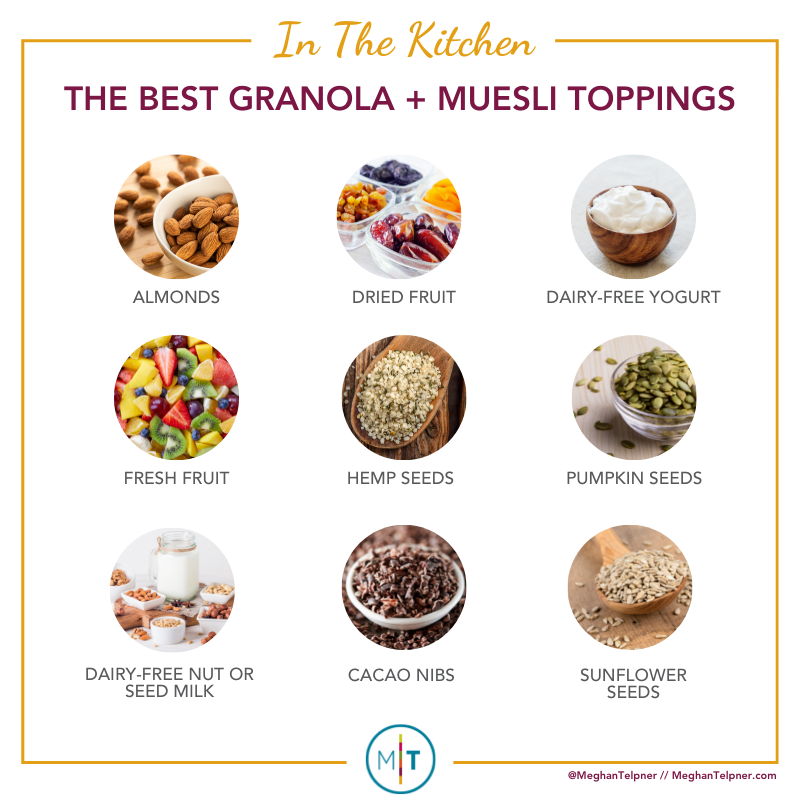
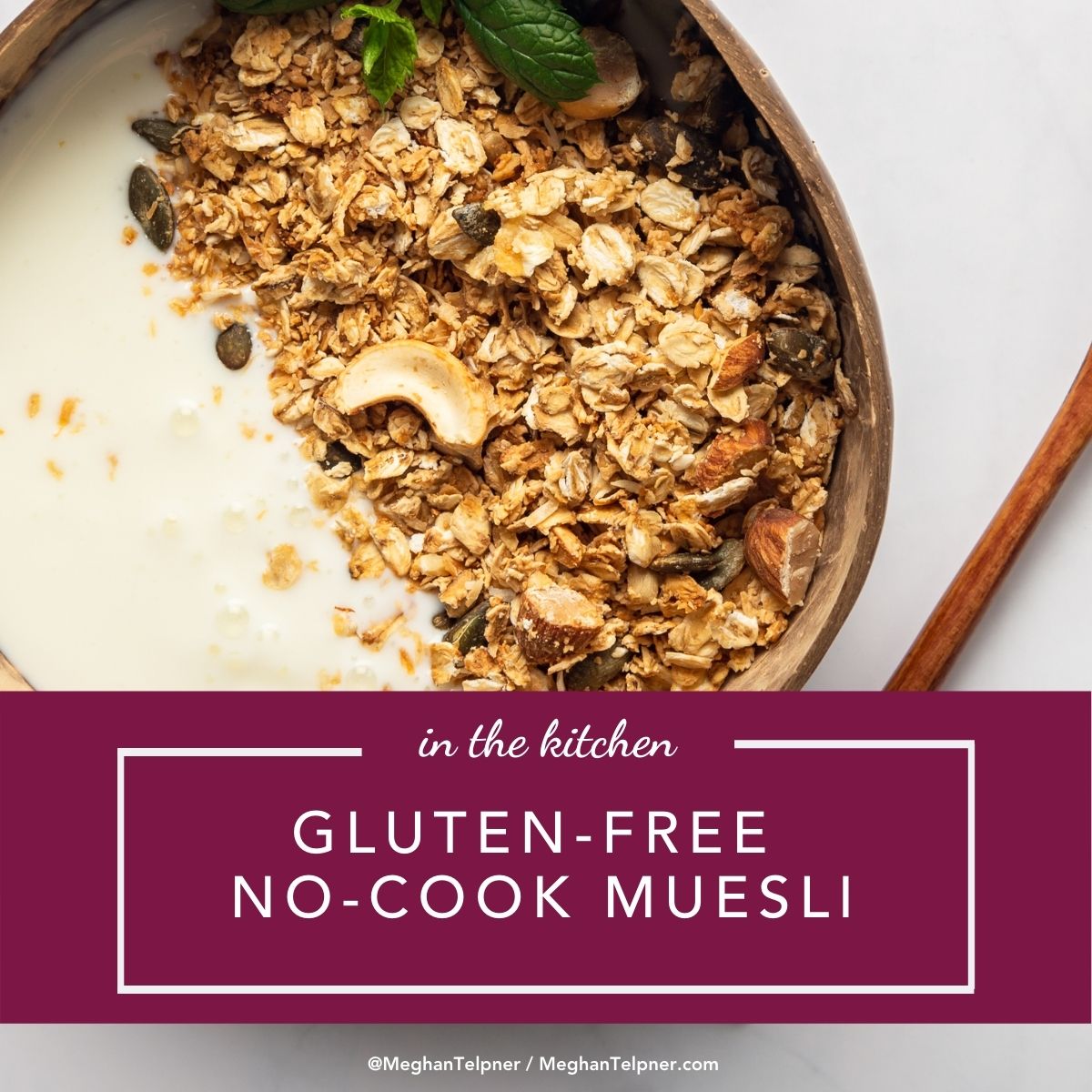
Free Resource Library
Enjoy more than 40 downloadable guides, recipes, and resources.















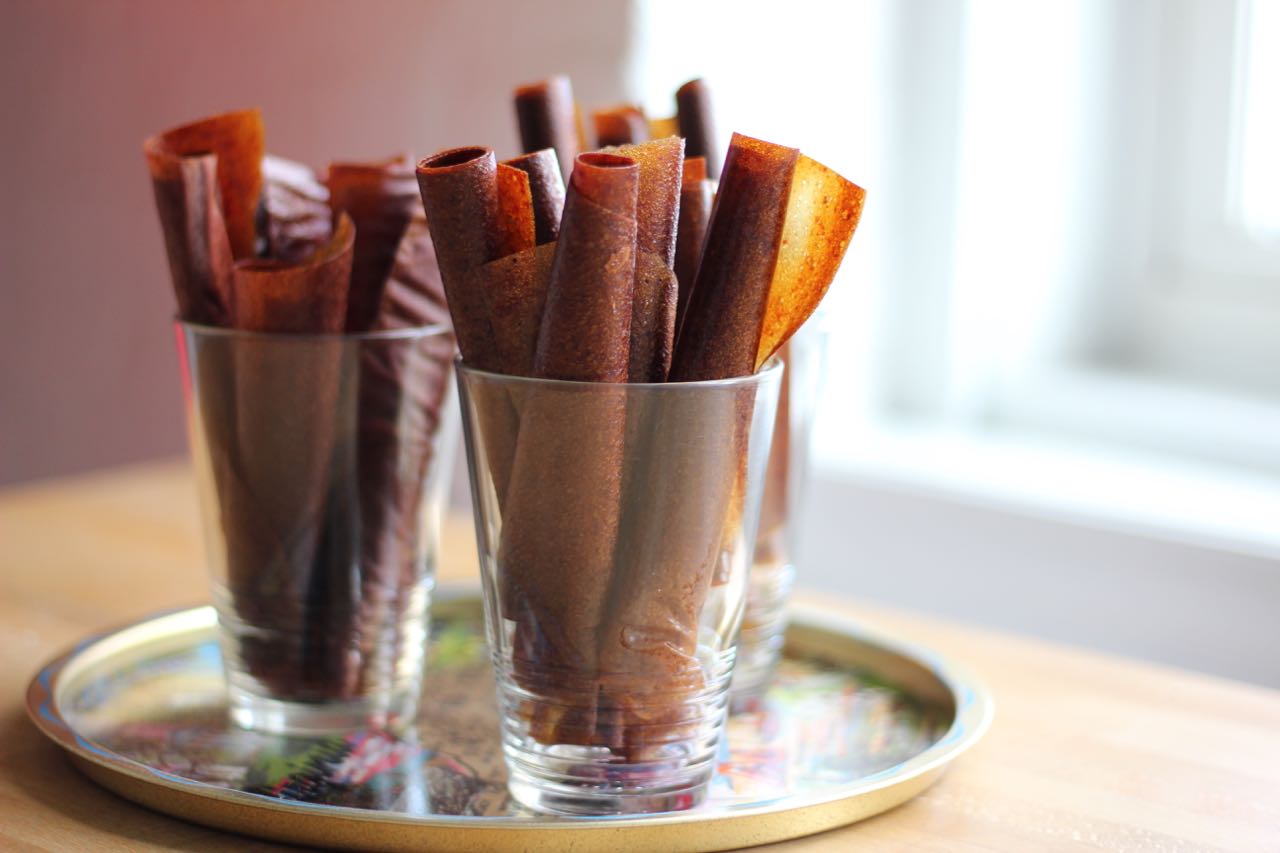

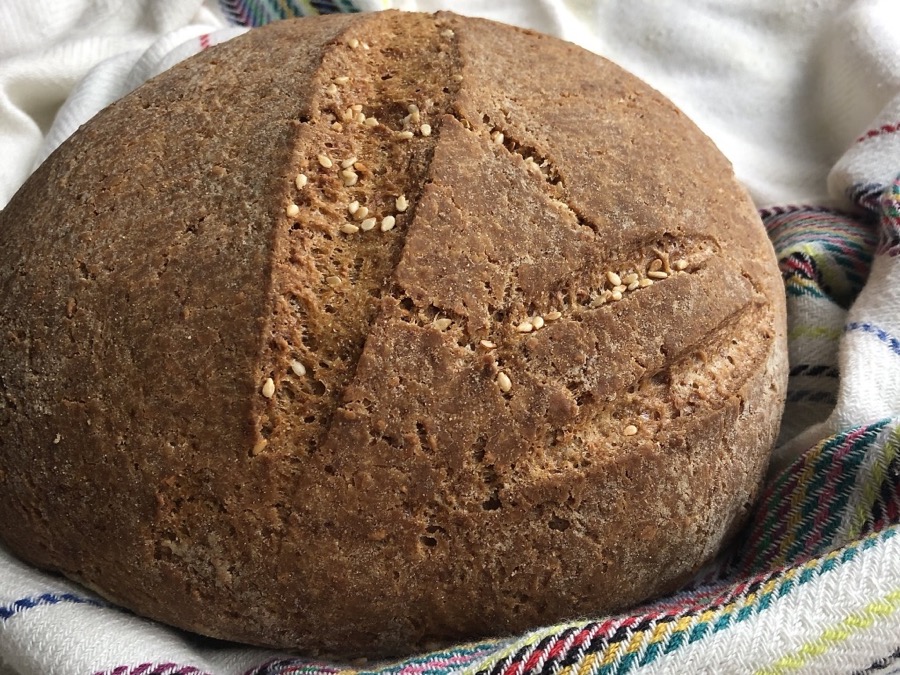

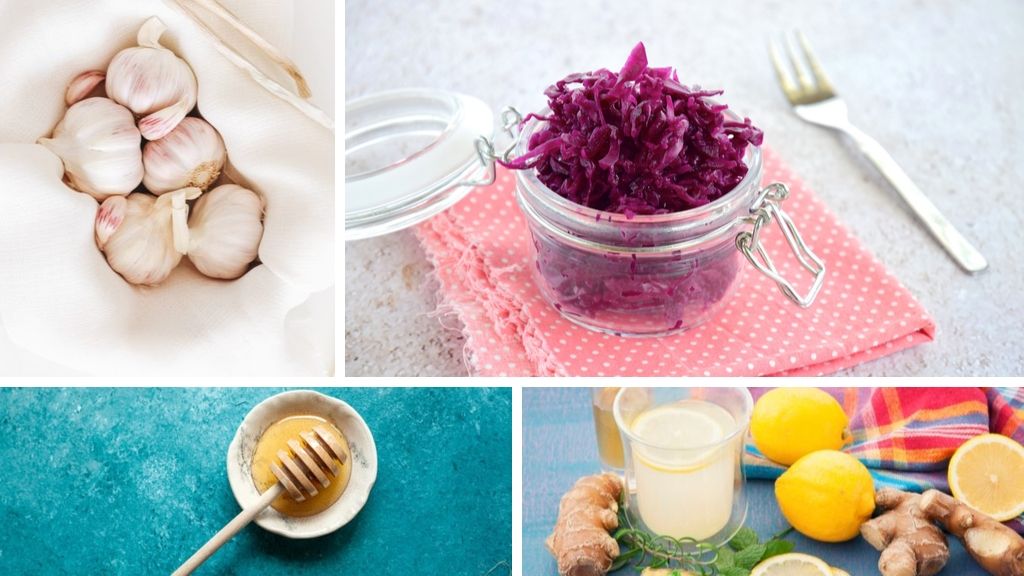

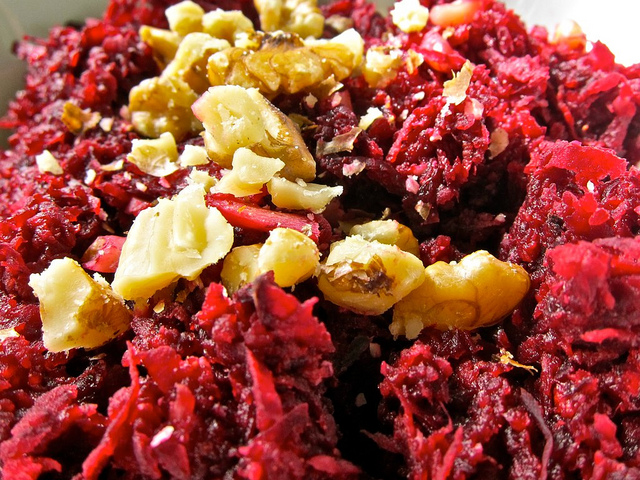
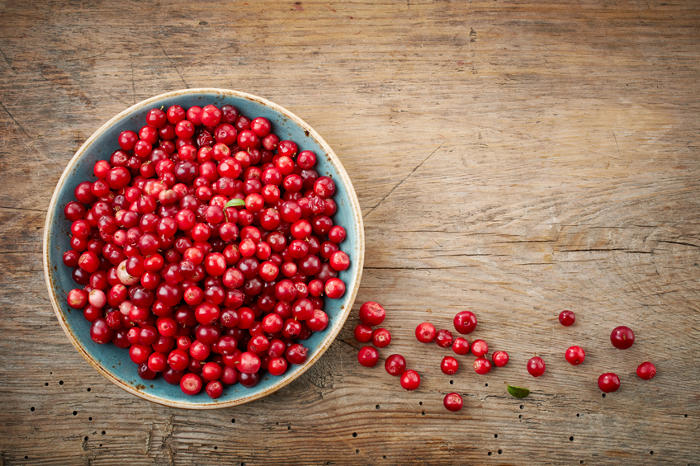
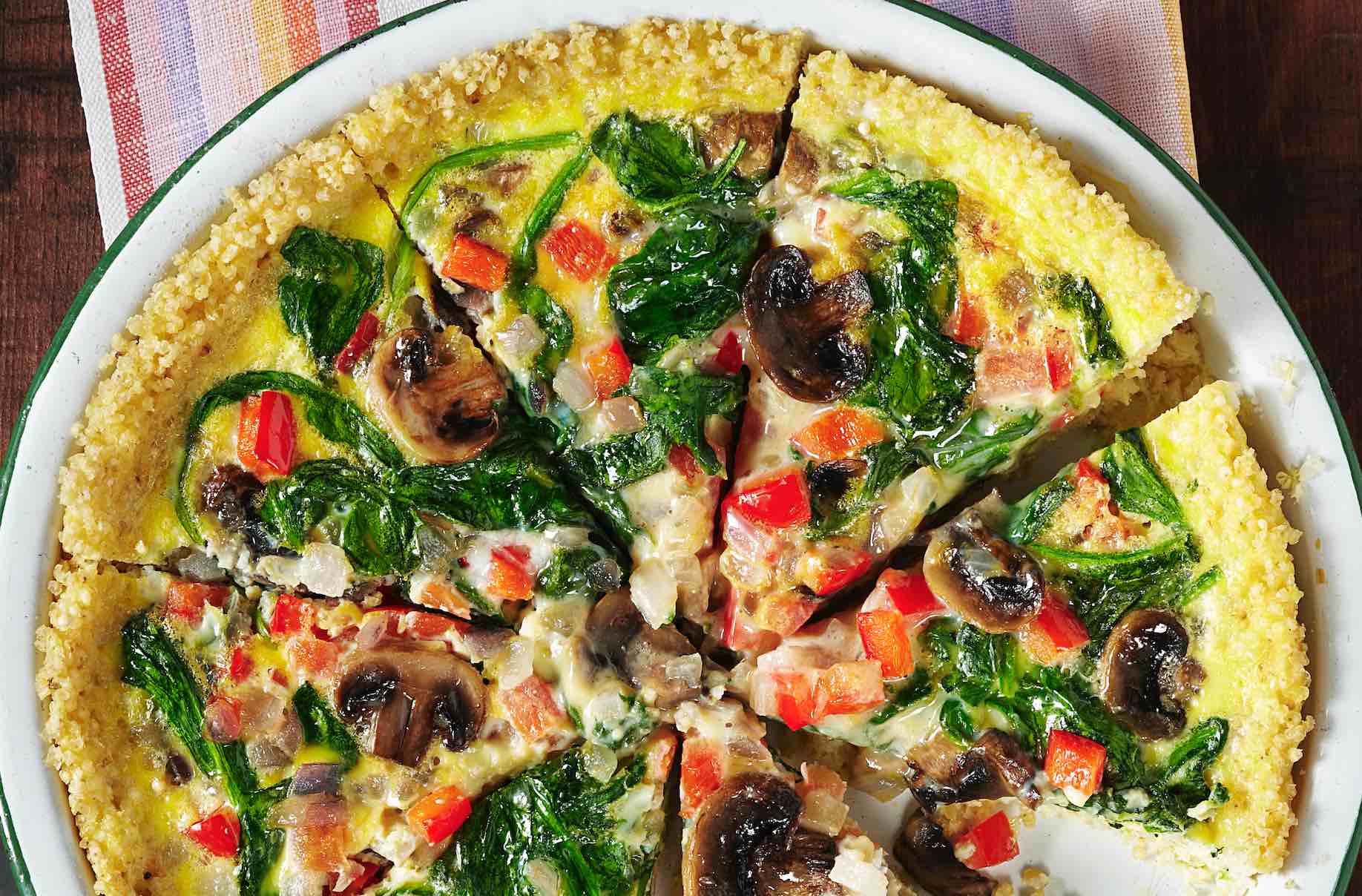
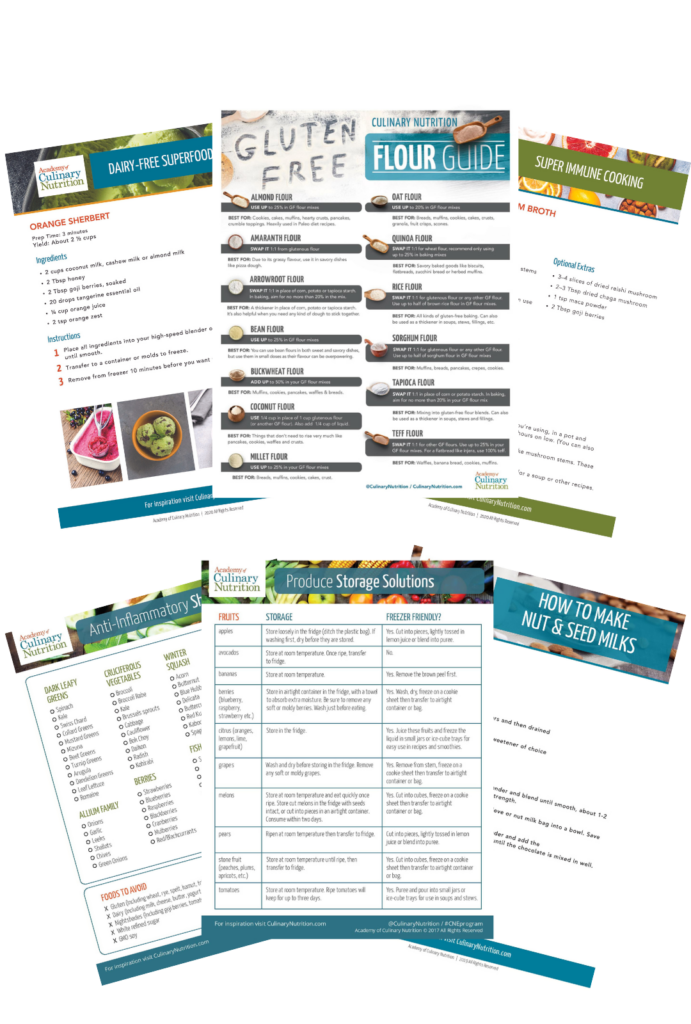
Best Day of the Weekend
Best Day of the Weekend
ooo a little dried fruit like dates in this would be amazing. I am going to try it and hopefully the oats wont give me much trouble. Muesli rocks!!
Looks delicious and a great start for the day! I like how you have buckwheat and pumpkin seeds.
That sounds so yummy Meghan!! Will definitely have to make this soon…
You’ll hate me for this, but for the German market there’s http://www.mymuesli.com where you can mix your favorite flavors together and have them delivered to your house. The ingredients are all organic. You start with a “base” and add as many ingredients as you like. I’m afraid its in German, but the company is very popular over here.
Meghan,
I am a gluten and dairy free gal, so I will try the lemon juice! But I was wondering what kind of yogurt do you use? Have you ever made home-made yogurt out of coconut or nut milk?
Love, love, love your site!
Hi Barbara, So happy that you are enjoying my site! So nice to hear. I sometimes use goat-milk yogurt but as I am about an egg a month away from being vegan I am about to venture into the nut-yogurt adventure. Will be sure to post about that creation when it happens. The lemon with almond milk works brilliantly for this purpose too.
A question about the form of buckwheat used in the recipe. I’ve only used buckwheat flour and noodles. I went out and bought some buckwheat …. kernels? bits? What are they called? So these will become soft in the over-night soaking, correct? I guess this is the actual whole buckwheat.
Loren- I am not sure what they are called. They are actually seeds of the rhubarb plant. So I guess they can be called seeds. They will soften in the soaking.
I hope this doesn’t diminish from the superfoody-ness of the muesli/granola, but the other night, I just wanted like an apple crisp type dessert. I cup up a small apple, and sprinkled about 3-4 tablespoons of the muesli mixture on top, swirled about a tablespoon of honey on top of that, and topped it off with 1-2 teaspoons of coconut oil. I baked it in a small dish in our small countertop oven for about 15 minutes! It. Was. Perfect! So yummy and so healthy!! The top was slightly crunchy from the granola and the apples underneath were warm, sweet, and delicious! I thought it was such a healthy “dessert”! I didn’t have buckwheat groats in my mixture because I only had oats when I made it, so I didn’t have to worry about breaking a tooth or anything. I know it may sort of take away from the healthiness of soaking the grain, but I loved it and didn’t feel guilty about eating it!